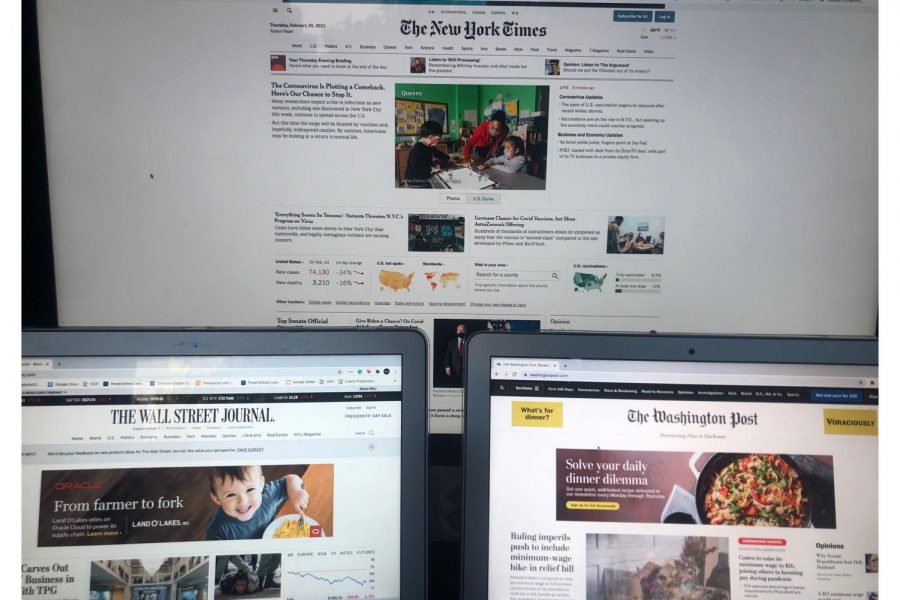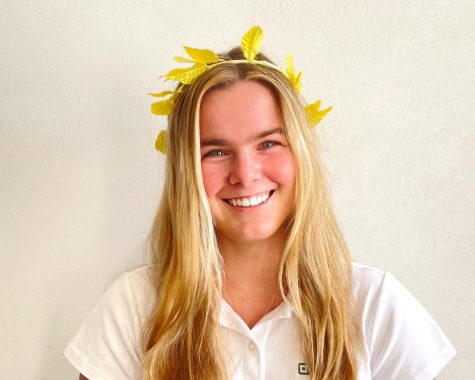Beyond scholastic journalism: Students reflect on media consumption
Photo credit: Grace Doyle
In honor of Scholastic Journalism Week, students reflected on their media consumption. The Oracle put together a survey for students to fill out with the purpose of reflecting on media consumption and literacy.
February 25, 2021
In honor of the Journalism Education Association’s Scholastic Journalism Week, students from sixth to 12th grade took a survey sent by the Oracle staff with the purpose of reflecting on media consumption. Today’s theme of Beyond Scholastic Journalism was highlighted through questions prompting students to note their primary news sources, media literacy and variety of story choices.
After completing the survey, senior Tove Jegeus reflected on the variety of sources widely available today. Especially for younger generations, Jegeus noted how platforms and options for news are “everywhere.”
“These days there are so many sources and resources for, especially, people in our generation to get their news because we’re all on social media, we’re all also going to the news and watching it and listening to it in the car. And we all are more educated because the news is everywhere for us whereas people in older generations don’t use social media as much” Jegeus said. “So I think it shows that we have so many different resources and everyone kinda gets their information from different sources the range is widening.”
The idea of media literacy through fact-checking while consuming media led to the question of having a well-rounded understanding of the news. Junior Olivia Jarvie discussed her experience with learning about and implementing media literacy.
“Ninth grade was really when we got that lesson on media and learning how to navigate what sources you look at and how to tell if it’s credible,” Jarvie said. “Without that class, I don’t think I would be able to do that, so I think it’s incredibly important to have [media literacy] in the curriculum.”
In terms of understanding current events, Jegeus touched on the importance of media awareness, especially as she’s gotten older. Jegeus said she wants to be able to have a discussion of current events as she’s become more “willing” to read the news over time.
“As I’ve gotten older, I’ve definitely wanted to learn more about what’s going on in the news and to be more educated because I know in classes we talk a lot about current events and I just want to be aware and be able to discuss these things with the knowledge I have,” Jegeus said.
Overall, Jarvie emphasized the importance of fact-checking when consuming the media. For users of social media, she talked about the chances of being “misled” by falsified news.
“I’ve been trying to [fact-check] more regularly if I see a title that is a bit questionable. Especially on social media, there’s a lot of misleading posts,” Jarvie said. “I think it’s really easy to be misled.”










Tiffany Smith-Anoa'i • Feb 27, 2021 at 9:36 am
Gracie!
Enjoyed your article, especially as someone who didn’t grow up with social media and having to literally “wait,” for news via television or the morning paper, it was interesting to read how Archer students are consuming media.
Great job!